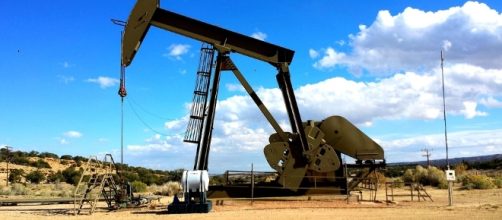The CEO of the Saudi Arabian Oil company - or Aramco - said on Monday that the world's oil market may be headed towards a supply shortage due to low investments and the absence of new oil resource discoveries.
Amin Nasser, CEO of Aramco, told reporters on Monday that meeting future demand quantities was contingent upon finding new unconventional shale oil and alternative energy resources. However, the CEO doubts that the resources can be developed fast enough to meet future demand.
"If we look at the long-term situation of oil supplies," Nasser said, "the picture is becoming increasingly worrying."
Nasser also told reporters that investors have been hesitant to make,"much needed large investments in oil exploration, long-term development and the related infrastructure." The Aramco head also claimed the the current smaller investments being made will "just not cut it."
The recent decline in oil discoveries will also contribute to a possible oil shortage, with Nasser claiming that discoveries over the past four years have "more than halved" compared to the four prior.
Nasser asserted that Aramco was planning to invest over $300 billion over the next decade and to continue researching new technologies in order to maintain its current production of 12 million barrels of oil per day.
US Oil Production
Although Saudi Aramco is predicting a major petroleum shortage in the coming years, US Oil production has increased by 10 percent since this time last year.
This comes less than six months into the presidency of Donald Trump, who has repeatedly stressed the importance of US energy production.
US energy companies have increased production for the past 24 weeks, with firms adding seven new drilling rigs just last week. According to energy services company Baker Hughes, the US oil industry has seen some of its largest growth since April 2015.
Investment banking firm BNP Paribas told reporters that they have made "deep cuts" to their crude oil price forecasts.
"We now see the price of WTI averaging $49/bbl in 2017 (-$8/bbl revision)," the firm said in a statement, "and that of Brent $51/bbl (-$9/bbl revision)."
OPEC and Future Oil Production
In an attempt to avoid a saturated oil market, members of the Organization of Petroleum Exporting Countries - or OPEC - decided to limit production until 2018; however, the move has not been successful in preventing increases in global production of petroleum.
Officials from several OPEC member states will met with Russia on July 24 in St. Petersburg to discuss the future of the global oil market and oil production.
Kuwaiti officials said on Monday that Nigeria and Libya may both see caps put on their production before November, when OPEC is set to have official talks.
Libyan officials have said they are ready to engage in talks, but hope that the country's political, economic, and humanitarian situation must be taken into account.
With US petroleum production booming and oil prices falling, US consumers may expect to see a decrease next time they fill up their gas tanks. However, struggling foreign oil companies in countries without diversified economies may lead to global economic trouble in the long run.


